Contents
Being in debt sucks – but it doesn’t have to be forever.
If you want to learn how to become debt free once and for all then you’ve come to the right place.
The sole aim of this article is to give you all the information you need to effectively beat your debt mountain with the minimum of effort, and with maximum results.
Just a few of the things you’re going to learn include:
- The best ways to pay off debt
- Strategies other people have successfully used to become debt free
- How to find more money for repaying debt
- 30 golden rules for a debt free life
- 50+ tips for reducing your monthly expenses
- Tips and advice from other people like you who have become got out of debt
- An assortment of recommended free debt repayment tools, resources and downloads
[Warning: there is a lot of information in this article. I strongly encourage you to bookmark it now so you can refer back to it in the future. You can pin this article for later by clicking here]
Introduction to Becoming Debt Free
If this is the first time you’ve ever visited Frugality Magazine then I need to get something off my chest…
While I’m now proudly debt free, things weren’t always like that.
Truth be told, I spent most of my 20’s drowning in debt.
The important take-home point here, however, is that I have a lot of personal first-hand experience with debt in all it’s formats.
I’ve piled it up.
I’ve lost sleep over it.
Heck, I’ve even ruined my credit score over it.
But the important thing is this – I’ve also got rid of it.
I’m living proof that no matter how helpless you feel right now, there is a way out.
Step 1: Creating A Plan To Become Debt Free
If you’re going to war with debt then you need a plan of action.
The military would never wonder aimlessly into an enemy war zone without suitable intel, nor without a plan of attack.
In other words if you want to become debt free then you need to arm yourself with the right tools and an effective plan.
Only then can you significantly increase your odds of success.
Throughout the course of this article we’ll put together a simple yet effective plan of attack for you.
By the end you’ll know exactly how to become debt free…
Gathering Intel
I’ll be the first to admit it; one of the reasons why I personally struggled for so many years to get out of lack was a lack of “visibility” about my finances.
Quite simply I didn’t know with certainty just how much I spent each month – and on what.
As a result, while I always aimed to pay off debt each month, in reality I very rarely had “spare” money for such a process.
Once I really got serious about paying off debt, suddenly the whole process became an awful lot easier.
The first step in becoming debt free is therefore to get a better understanding of your finances as they are right now.
From here we can start to formulate a plan of action for becoming debt free once and for all.
Here’s what you need to gather:
Your Last 3 Months of Bank Statements
If you want to understand your natural spending tendencies in depth then the very best strategy I have found is consulting your bank statements.
If, like me, you do most of your spending with plastic (I rarely carry cash) then you’ll already have a detailed trail of where you’ve been and what you’ve spent.
There’s no “assumptions” and no hard work to assess your spending.
There’s also certainly no misinformation. For better or for worse – bank statements don’t lie.
Why three bank statements?
I have just found over the years that the last three months tends to give a fair average of your spending.
We tend to be creatures of habit when it comes to personal finance so only a few months of analysis are necessary.
What To Do With Your Bank Statements
The goal of gathering these bank statements is to assess how you’re spending your income right now. Naturally. Without anyone looking over your shoulder.
By really digging deep into your spending you’ll not only gain a far more realistic understanding of how much money is coming in and going out – but also where it’s going.
In addition to this, if you’re like many people, when you look at every expense over the last few months you’ll immediately find alarm bells ringing.
You’ll see expenses you didn’t know you were making – like a monthly subscription you haven’t used since last year, or realizing that you spend more money on takeaway coffee than you do on your weekly groceries.
So here’s what you need to do:
1) Categorize Your Spending
For each month of transactions you want to create categories.
Then, going methodically through your statements, line-by-line, you want to sort all your transactions into categories.
The intention here is that you’ll see just how much you’re spending each month on your car, on your home, on food, on luxuries and so on.
Here are some sample categories to get you started:
- Health & Fitness – gym subscriptions, beauty treatments, food supplements, fitness equipment etc
- Food – eating out, takeaway food, grocery shopping
- Utilities – gas, oil, water, broadband, cell phones etc
- Entertainment – cable TV services, bar tabs, shopping sprees, vacations etc
- Transportation – fuel for your car, car maintenance costs etc
- Debt – how much you’re spending on repaying your debt each month
Personally I like to use a good old-fashioned notebook and pen for this, but there are tools that can help too.
2) Analyze Your Results
Once you’ve carved up your spending, take a good look over all that money that has been falling through your fingers.
How does it feel?
Does it make you angry, sad, frustrated?
What shocked you?
What are you spending far more on than you realized?
What are you spending money on without even using it or enjoying it?
When I did this exercise I found a number of pieces of software I was paying for each month, but hadn’t used for so long I couldn’t even remember my password!
3) Calculate Your Income/Expenses
Lastly, add up all the figures to give you a fair idea of how much you’re earning each month, and how much you’re spending.
This information is critical because – to state the obvious – the less you spend, the quicker you can get out of debt.
Your Latest Debt Balances
The second set of information you want to gather are your current debt balances.
Grab your trusty notebook – or create a spreadsheet – and list down all your debts.
You’re going to want to list:
- Creditor name
- Total owed
- Interest rate
- Minimum monthly payment
In addition, add up everything you owe (yes, I know it’s depressing) so you know what your target is – just how much you’ll need to cover in the coming months and years in order to become debt free.
Take Home Points:
-
Using your bank statements gather a good picture of where your money is going
-
Make a record of your various debts (you’ll need this later on)
-
Understand exactly how mch you’re spending, and what your income is each month
Step 2: How To Speed Up The Process of Becoming Debt Free
By this point you should have a fair idea of your current financial situation; how much you earn, how much you owe, and how much you have to become debt free.
You might be feeling pretty bad about the whole situation – looking at those unwieldy numbers displayed before you in black and white.
But we’re not quite ready to put a debt repayment plan in place just yet.
Why?
The reality is that one of the reasons why becoming debt can be so challenging is how little impact every action you take really has on your debt.
If you’ve got $20,000 of student loans, for example, then paying off $100 a month is just a tiny drop in the ocean.
Work out the math and you’re going to be paying off debt for a long time to come.
However there’s a reasonably easy solution to the problem; bend the rules.
There are three key ways we can do this:
- Lower the total amount of debt that you owe as quickly and painlessly as possible
- Significantly cut your expenses, thus freeing up extra capital for debt repayments
- Increase your income, further expanding the money you have to repay your debt
Let’s look at each of these in turn, in order to “bend the rules” of debt repayment, and speed up the amount of time it will take you to become debt free…
6 Ways To Rapidly Reduce The Debt You Owe
Debt, as it turns out, isn’t static. You have a degree of control over the money that you owe right now. Being able to significantly and rapidly reduce your debt can be highly beneficial because:
- It reduces the time it’ll take you to become debt free
- It provides instant motivation to get started
- It makes a seemingly insurmountable amount of debt into something more manageable
Here are some quick and dirty ways to make a rapid dent in the money you owe:
Sell Your Unwanted Belongings
We live in a consumer society, surrounded by goodies.
From mountain bikes to video game systems, from DVDs to deck chairs, I can almost guarantee you that you’ve got all manner of items in your cupboards, loft or garage that you barely (if ever) use.
For a quick improvement in your overall debt situation consider selling these items to instantly release equity.
But what if you don’t have unwanted belongings to sell?
Well in that case consider selling stuff you actually still want.
You won’t be the first to do it; many people that have got serious about paying off debt over the years have opted to sell their car, TV or other such belongings to make an instant impact on the money they owe.
Negotiate Your Debt
Here’s a funny thing about debt; just because your creditors tell you that you owe them a certain amount doesn’t necessarily mean this is the case.
In many situations it’s actually possible to ring up your creditors and discuss lowering the amount you owe them.
Why would they accept less money than you owe them?
Well, there are two reasons really. Firstly, they want your money as soon as possible. The sooner you can repay it, the better the terms will likely be.
If you have followed the previous suggestion and sold a load of stuff to free up capital, it can be quite effective to ring up and offer some kind of “lump sum” in exchange for lowering the overall amount owed.
After all, it’ll cost you nothing but a short phone call to find out.
The second reason that your creditors might accept less than they claim you already owe them is if you can’t afford the current payments.
Under such circumstances they may be willing to drop the amount owing, if it guarantees that they will definitely get paid each month on time.
Note that this strategy is far more difficult to successfully implement, and can negatively impact your credit.
However if that’s a compromise you’re willing to make then there are companies that will negotiate your debt on your behalf.
Negotiate Your Interest Rates
Just as the overall balance you owe isn’t necessarily fixed, nor is the rate of interest you’re currently paying.
In truth, most creditors would rather keep your business at a slightly lower interest rather than lose it altogether.
It can be wise to consider ringing up your creditors and explaining that you’ve been offered a better deal elsewhere.
Explain that you’re aware that lower interest rates are available, that you’re considering swapping.
Then enquire if there are any concessions they might be able to make.
You might be surprised by just how much interest you can save when you just ask.
Pull Money From Other Destinations
Perhaps you’re one of the unlucky few that has plenty of debt and zero savings.
But perhaps you’re someone who has other savings squirrelled away.
If you are, you might want to consider drawing on some of those savings in order to get your debt repayment journey started as soon as possible.
I must admit that this is rather a controversial suggestion.
I certainly wouldn’t suggest that you withdraw all your savings – indeed when paying off debt I would argue that maintaining an emergency fund is even more important.
But if you’ve got $10,000 of debt accruing interest at 5% and a savings account accruing interest at 2% it might just make financial sense to use some of your savings to pay off debt.
I know that watching your savings account being depleted can be depressing, but at least you’ll reach the “debt free finish line” that much quicker. And at that point you can start to replenish your savings that much quicker.
Use Your Tax Rebate
If you’re one of the lucky few who receive a tax rebate from time to time try not to view it as “free money” to enjoy yourself with.
As most tax rebates are a “lump sum” that you receive over and above your typical income the reality is that you probably don’t need the money.
So rather than putting it towards a vacation, or buying presents for Christmas, instead consider sacrificing it immediately to make an instant and sizeable dent in the money you owe.
I know it’s a bit less exciting than heading to Cabo – but won’t it be more beneficial in the long run?
Use Your Bonus
If you’re lucky enough to work in a job where you receive a bonus, this too can be applied instantly to paying off debt rather than just frittering it away on things you’ll have long forgotten about in a few month’s time.
How to Reduce The Money You Spend
When I first started trying to pay off debt I was doubtful that I had any “spare” money available to increase my debt repayments.
As it turned out, I was totally wrong.
By carefully analysing my spending over the previous few months, I found that actually I was spending money like it was going out of fashion – and often on things that made no real difference to my quality of life.
Just a few of my own weaknesses were:
- Software subscriptions for tools I hadn’t used in months
- Membership to a gym I only visited once every few weeks
- Extortionate monthly hosting fees for a website I stopped updating years ago
- Living in a house that was far too big and cost considerably more than I could afford
Cutting these expenses aggressively can have a massive impact on your journey to debt free living.
Out of the blue, I found several hundred dollars each month that I could easily put towards debt repayment.
Even better, by carefully analysing my spending each month, looking for ever more potential cuts – I kept on finding more and more money than I had been wasting – and that could now be applied to my debts.
Remember that every extra dollar you can find will significantly reduce the period of time until you’re debt free.
Using The Japanese Principle of Kaizen To Become Debt Free
This Japanese word describes the process of continual improvement.
It is often used in businesses, meaning that even a 1% monthly improvement in efficiency, impacted over the course of a year or two can have a massive impact on your eventual results.
This same principle can be applied to personal finance; and debt repayment in particular.
When you first start cutting expenses from your budget you’ll likely “find” some extra money you can apply to your debts. It might not be easy or comfortable, but all but the most frugal people will be able to find some money.
The funny thing is that at the end of the next month I would go through my more minimal budget and find yet more things I could potentially cut without too much pain.
So I’d cut them too.
And so on.
Even six months later I was surprising myself with yet more cuts that I hadn’t noticed (or hadn’t wanted to consider) some time before.
Frugality is essentially a muscle. It takes time and effort to build that muscle up to full strength.
Don’t think that just because you’ve found a few hundred dollars a month that this is all you can manage.
As you adjust to your new lifestyle you’ll almost certainly be able to identify other cost savings in the future. And to do so without pain or discomfort.
The principle is simple; each month you try to beat the previous month. You spend a little less. You pay off a little more debt. You earn a tiny bit more.
Make it a competition with yourself. Have fun with it, and enjoy your monthly “budget tracking” meeting, where you see just how much you’ve kicked butt this month – and plan how you’re going to do even better next.
How To Find More Money For Debt Repayment
Ideally, by now you’ll have gone through your expenses in detail.
Now is a good time to looks for savings.
Faced with your recent financial past – displayed there in black and white – work through the list again, considering how you might save money on each factor.
Here are some examples to get you started:
Cell phone
- Do I really need a cell phone at all?
- If so, could I upgrade to a better tariff?
- Could I change to a lower-cost provider?
- Am I paying for minutes/texts I’m not actually using?
Grocery Shopping
- Am I using coupons on a regular basis?
- Do I throw food away because it goes out of date?
- Is my normal supermarket the cheapest in my area?
- Are there expensive items I could buy less of (such as meat)?
While this process takes time it can be very powerful for immediately finding potential savings in your budget. It’s what fellow blogger J Money calls “challenge everything“.
49 Ways To Save Money Every Month
Want some more pointers for cutting your monthly expenses?
Here are some of my top tips for rapidly cutting the amount of money you spend each month…
Look for bargains at the supermarket. Collect supermarket fliers to find the latest deals. Join mailing lists so you get the latest promotions. Start your weekly shop with these bargains and then “fill out” your cart to turn them into meals.
Grow your vegetables. Growing veggies doesn’t have to be difficult – and no matter how much space you have you could save some serious money each month. Learn more about what I grow here.
Write to suppliers for coupons. Collecting coupons from the newspaper is one thing, but if you’ve had a bad experience with a product or retailer try writing to them. Many will send you coupons as an apology. The same goes for good news; if you love something or had a great experience write and tell them – you might just get lucky!
Use a budgeting app. There are numerous smartphone apps for managing your money. Simply enter in the total amount of spending money you have each week and whenever you purchase something it’ll be removed from your total. This makes it super-easy to see how much money you have left in your budget.
Pay your bills on time. Late bills accrue interest, so jump on every bill as soon as it arrives. For regular bills try to set up automatic payments to go out every month. For the easiest budgeting around, try re-arranging payment dates to coincide with when you get paid.
Switch to energy-efficient lightbulbs. Every bit of electricity you use costs money, so do whatever it takes to use less. Whether that’s remembering to turn lights off when you leave a room, or investing in some low-energy lightbulbs, all these subtle changes can add up fast.
Use a radiator-reflector. Did you know that over 40% of the heat produced by standard radiators can end up escaping from either your window or your wall? Fit reflectors behind them to ensure you get as much of that warmth as possible – then consider turning down your thermostat without feeling any colder.
Exercise outdoors. If you’re trying to become debt free then expensive gym memberships are a luxury you can’t afford. Instead, try running or cycling outside; it’s a lot more fun and it’s cheaper too.
Avoid shops like the plague. There’s nothing worse when you’re trying to spend less than the temptation of shops. Remember: they’re experts at parting you from your cash. So avoid the shops – and avoid temptation.
Go brand-free. Unbranded goods are often just as good as the well-known brands but cost a tiny fraction. Whether it’s clothes or groceries, consider the no-name brand and see just how much you could save.
Cancel unused expenses. When you go through your bank statements looks for any recurring payments that you’re not benefiting from. Be realistic and if you’re not getting your moneys-worth then consider cancelling it altogether.
Cancel luxury expenses. What luxuries do you enjoy on a regular basis? Perhaps you like a manicure, or a magazine subscription, or your cable TV? Whatever it is – learn the difference between “wants” and “needs” and consider cancelling anything that isn’t a true necessity.
Check what you get free with your bank account. These days many bank accounts offer all sorts of perks. I get free breakdown cover, insurance for my cell phone and travel insurance, for example. I also recently discovered that I get free cinema tickets and buy-one-get-one-free in an assortment of restaurants. Try checking what you get to help you save money.
Check what you get free with your credit cards. Credit cards can offer even more perks – like points towards free travel. Investigate what you get right now – or consider swapping to a provider with more incentives.
Sell your belongings. If you want to get out of debt fast then one of the best tips is to hop on Ebay, Amazon or Gumtree and start selling your unwanted goods. You’ll be amazed how much you can raise in a short space of time.
Cancel your cable TV. Consider cheaper alternatives like NetFlix or Amazon Instant Video, or just borrow DVDs from your friends. Best of all, give up on TV altogether, and do something more rewarding instead.
Reduce your cell phone tariff. Check out your latest bills and see if there are cheaper tariffs you could switch to. Here’s how.
Lower your utility bills. Don’t just accept your utility bills as they are; instead use one of the many price comparison sites to see how much you could drop your utilities.
Drive less. Owning a car is expensive enough, but filling it up with fuel can be enough to make you cry. Consider alternatives like car sharing or cycling; every saved journey helps your pocket as well as the environment.
Start a food diary. It has been estimated that up to half the food we buy ends up in the bin. What a waste of money. Remedy this by setting up a diary or calendar to record best-before dates. That way you can eat your food in the right order and stop throwing money away.
Collect coupons. It might not be everyone’s idea of fun but consider spending time collecting coupons for groceries. Doing so will allow you to slash your spending without having to compromise on what you buy.
Give up meat. Meat is one of the most expensive ingredients any of us eat. Consider eating a more vegetarian diet, keeping meat for a real treat.
Download money-saving apps. A quick search of your app store will reveal all manner of money-saving apps. They’ll alert you to discounts in your local area or allow you to claim cash back from your shopping. Best of all, they’re free to download.
Compare the price of fuel. Fuel for your car can be expensive, but prices can also vary considerably between filling stations. A number of websites will do the comparison for you to find the cheapest place to fill up.
Take lunch to work. Buying lunch every day can be expensive; give up on the premium sandwiches and pricey coffees; instead “brown bag” your lunch and pocket the difference.
Negotiate your interest rates. Don’t just accept the interest rates you’re paying on your debts; try ringing up your creditors to discuss whether they might be willing to offer you a better deal.
Refuse to upgrade your cell phone. Upgrading normally involves an unnecessarily expensive phone contract. Consider either not upgrading – and reducing your tariff instead – or upgrading and then selling the brand new phone. Either option will save you money.
Borrow instead of buying. If you need something for a short period of time try not to purchase it; the item will only sit there gathering dust and depreciating in value. Instead use social media to see if any of your friends has one you can borrow. As a last resort consider renting instead of buying an item.
Collect rewards points. Companies love to reward us for our loyalty. Why not leverage that? Sign up for as many loyalty schemes as you can and earn points for every purchase; it all adds up!
Join simple money-making sites online. Building a true business is tough, but most people can earn at least a little bit of money online. Whether it’s completing surveys or watching adverts, sites like these can earn you free Amazon gift cards – perfect for Christmas and birthdays.
Implement a no-spend week (or month). Spending money might be pleasurable, but the buzz never lasts. Consider going the “whole hog” and implementing a complete spending freeze. Try to survive without buying any luxuries; even try to empty your cupboards of food with creative cooking. Just a single month like this can have a major impact on your debt.
Buy second-hand. If you need to buy something, consider second-hand instead of new. Personally I only buy second had cars and I save a ton of money on books by buying second hand on Amazon.
Negotiate your debt levels. Try offering a lump sum to your creditors and see if they’re willing to reduce the overall sum of debt that you owe them; you might be surprised with the results!
Join the library. Public libraries are awesome. Enjoy the free books, and with some libraries either cheap or free DVD and video game rentals.
Use up what’s already in your cupboards. Do you really need to buy all those groceries each week? If you’re anything like most people you’ve got cupboards full of food you never eat; try combining them creatively to use up all those unloved ingredients you’ve already paid for.
Cancel your gym membership. Keeping fit doesn’t have to be expensive.
Cook at home rather than eating out. Eating out is expensive. If you want to save money to pay off debt then stop going out, and instead try home-cooking all your meals. Besides; having friends round for a dinner party is so much nicer than even the poshest restaurant.
Find free hobbies. Give up the golf, the sailing and the horse riding. Many hobbies cost a lot of money – but not all of them. There are all sorts of cheap or free hobbies you could try.
Carpool. Leave the car at home and instead consider getting a lift with other people. It’ll save you money and it makes travelling in to work a lot more fun.
Learn to drive energy efficiently. Did you know that you can save money when you drive based on how you actually drive your vehicle? Firstly, remove any “dead weight” such as roof racks or junk in your boot. The lighter you make your car, the better. Secondly ensure that your tyres are properly inflated. Lastly consider your accelerator and break as “money pump” – the harder you push them, the more money you’ll burn. Drive smoothly and you’ll save plenty of fuel.
Pay upfront. Many annual charges allow you to pay in smaller instalments. Car insurance is a perfect example. However you’ll also typically pay a premium for this payment agreement. So stop doing that and (if you can) just pay upfront to save on the premium.
Plan ahead for Christmas. We all go a little nuts at Christmas – myself included. But there’s no need to put all your spending on credit. Instead, plan ahead putting money aside each month. It’ll mean a nicer Christmas – and also a cheaper one as you won’t be paying any interest on the debt you accrued. Here are my top tips.
Downsize your housing. One of our single biggest expenses is our housing; our rent or mortgage. While it’s a big change, consider moving to a cheaper area or smaller house and reap the cost-related benefits.
Turn off lights. If you’re not using a room, turn off the lights. If you have a room that you rarely ever use – such as a guest bedroom – go one step further and turn off the heating to that room.
Don’t run the tap. When you’re brushing your teeth, shaving or washing up don’t leave the tap running when you’re not using the water.
Turn the thermostat down. Heating your home in winter can be expensive. But by turning the temperature down just a few degrees you can make a real difference to your bill. Alternatively consider having your heating running for less time.
Eat more cheap carbs. Pasta, beans, potatoes and suchlike are low-cost foods, particularly in comparison to many others. Try to “bulk out” meals with these cheap fillers; you’ll still feel full at the end, yet your wallet won’t feel quite so empty.
Use every part of your food. We throw away an awful lot of food that we actually could eat. Investigate how to cook with sprout leaves, carrot tops and the like. My favorite trick is to throw potato peelings in the oven with a little olive oil to create delicious crunchy snacks.
Find free events. There are free events going on all over the country. They’re a source of entertainment yet cost you nothing. Check Meetup or your local newspaper for events in your area.
Look for freebies online. If only you know where to look there is a world of free stuff you can find online – from music to books, toiletries to software. Here are some tips to get you started.
Ditch your expensive friends. You know the ones who don’t or won’t budget? With whom you always seem to end up spending more than you wanted? Be harsh – consider spending less time with them and more with your frugal friends.
Enjoy saying “no”. When you really want to spend money on something, saying “no” can be painful. Try to change your mindset and mentally pat yourself on the back every time you avoid buying something you want.
Have a staycation. Vacations don’t have to be taken abroad. Whether you stay at your own house or go to visit friends or family nearby, consider spending this year’s holiday in your home country.
Maintain your car. Like any other piece of machinery, cars need regular maintenance. Without it, things go wrong. These problems can often be expensive. Try to get into the habit of checking your oil, water, coolant and tyre pressure regularly. Also invest a little in a proper survey. You’ll prolong the life of your car and help prevent expensive repairs.
“Borrow” power from others. Imagine sitting on your own in a room, and the amount of light or heat you’d use. Then consider two people; same resources but now half the cost, right? Consider moving in with others, or at least spending time at other people’s houses and see just how much power (and money) you can save.
Use price comparison sites (and apps). To get the best deals on the things you do buy, take the time to shop around and get the best deal. I have discussed some of my top price comparison shopping tools here.
How to Increase Your Income
The final method for bending the rules for becoming debt free is to increase your income as much as possible. Even if you can only increase your income by $50 or $100 a month, that’s still going to rapidly speed up the time it takes you to become debt free.
Here are some of the most effective ideas for earning more…
Work overtime. Does your employer allow overtime? If so, consider offering to put in some extra hours each week. With some employers these hours pay even more than standard ones, making them even more tempting.
Get a second job. Depending on how serious you are about becoming debt free you might want to consider accepting a second part-time job. Whether you invest some of your evenings, or a day each weekend, such jobs can quickly provide a considerable boost in your income.
Get a promotion. Speak to your boss about forthcoming opportunities. Be willing to take on extra responsibility or go on training courses in order to reach the next (better paid) rung of the corporate ladder.
Negotiate a pay rise. You don’t necessarily need to get promoted in order to earn more; some employers are willing to consider paying more if they think you’re worth it. Why not set up a meeting with your boss to discuss the possibility?
Freelance. Thanks to the internet there are a wealth of opportunities to freelance if you have some valuable skills. From writing articles for others to managing their social media or doing graphic design. Even if you believe you’re without skills, many of these can be rapidly learned, allowing you to earn extra money from the comfort of your own home.
Start a business. Arguably the most difficult and risky strategy (yet with the biggest potential pay-off). Consider what sort of business you might be able to start – whether that’s a profit-producing blog or a local lawncare service.
Take home points:
-
Debt isn’t fixed; if you want to become debt free then you need to stack the odds in your favor
-
Implement “rule bending” strategies to make an immediate and sizable dent in the money that you ower
-
The less you spend, the quicker you can become debt free. Agressively slash your spending to free up money for repaying your debt
-
Investigate options to earn more money each month – and put your pay rise towards paying off debt
-
Remember: income minus expenses equals money for getting out of debt
Step 3: The Best Way To Become Debt Free
We’ve covered a lot of ground so far in this guide.
You’ve studied your expenses and implemented a range of techniques for cutting your spending.
You’ve taken action to increase your income.
Combining your higher income and reduced expenses means you now have more money to pay off debt than ever before.
You’ve also found ways to make an instant impact on your debt load, bringing it to an ever more manageable level.
Now it’s time to take all that hard work and start formulating a realistic plan for achieving freedom from debt.
In formulating that plan it’s essential that you consider the best possible strategy for debt freedom…
Three Methods for Paying Off Your Debt
If you’re currently trying to become debt free then you might be surprised to hear that there’s not just one, but three, different ways to pay off debt.
Option 1: The Standard Way
Most people trying to pay off debt have very little “strategy”.
They just keep on paying their debts without much of a plan until finally they’re debt free.
However this isn’t necessarily the best way to do it.
Why’s that?
Read on to discover two popular alternatives and see why these other methods of shifting debt are becoming ever more popular…
Option 2: The Debt Avalanche
Instead of just paying off debts at random the Debt Avalanche process is more strategic.
In essence you gather together all the debts you want to clear and then order them based on the interest rate you’re paying, starting with the highest.
Each time you clear the highest-interest debt, you reassess your remaining debts, arrange them into the correct order again (remember interest rates can change over time) and get started on the next most expensive.
As you might imagine, those debts with the highest interest rate are going to cost you the very most to clear.
In order words by focusing on these first you’ll find that clearing your debts costs considerably less overall than the alternative.
Option 3: The Debt Snowball
The Snowball method has been popularized by personal finance guru Dave Ramsey.
It’s another strategic plan to become debt free, but rather than prioritizing those debts with the highest interest rates, you instead focus on those with the smallest balance.
Why would it make sense to do that?
Quite simply its about psychology. There’s something wonderfully powerful about finally clearing a debt once and for all – no matter how small.
These “easy wins” can keep you motivated to pay off others, so the whole process “snowballs”.
What’s The Best Way To Become Debt Free?
Paying off debt takes effort, focus and self-discipline, so just paying off debt at random probably isn’t the best overall solution.
Instead I would suggest either the Debt Avalanche or Debt Snowball principle.
However quite which of these will work better for you depends on your personal circumstances.
If you’re the kind of person that struggles with self-discipline and needs constant encouragement to keep paying off debt then the debt snowball may prove the best solution for you.
On the other hand if you’re pretty motivated already and would prefer to save money over the long term then the avalanche method may be more appropriate.
There’s a handy free calculator that you can use here that will let you run different analyses of your debt repayment, in order to see how each of these strategies will pan out over time.
Step 4: Getting Inspired
If you’ve ever been on a diet you’ll know just how easy it is to fall off the wagon.
You blink – and before you know it you’re back to your old ways.
It’s exactly the same for becoming debt free.
Don’t pay enough attention – don’t make it a priority – and you’ll likely fail before you hit the finish line.
But you don’t want that, and neither do I.
So the final part of the plan to debt free living is to keep yourself going in the right direction. I’ve written extensively about getting and staying motivated to pay off debt but here I want to give you two of my biggest tricks…
The Magic of Tracking Your Way To Debt Freedom
You want to know how I managed to attend the gym every week for the last nine months without quitting?
It’s the secret that’s allowed me to lose 3 stone just this year: it’s tracking.
Every weekday, before I do anything else in the morning, I just step on the scales.
Sometimes my weight is up, sometimes its down. But whatever result I get I’m keeping my weight loss front and centre.
It’s the same with becoming debt free: you want to keep a record of every debt repayment you make, and your outstanding balance at the end of each month.
Whether you do this in a notebook or on a spreadsheet is up to you; whatever you choose, just do it.
The reason? When you can watch your debt dropping like a stone each month, when you can see every impact that your efforts are having, paying off debt can actually be quite addictive.
It’s like stepping on the scales each week and seeing that number getting lower and lower.
Suddenly all that effort and hard work seems worth it.
Its real. You’re making a difference.
Even better, as that graph starts to drop ever lower you can start to see the finish line. You can watch those trends and start to make some pretty fair assumptions about when you’re going to hit “Debt Zero”.
You start to realize that all this self-discipline isn’t for nothing. The end is in sight – no matter how long it takes to reach.
Debt Repayment Success Stories
The other incredibly powerful technique to motivate yourself to pay off debt is to read about other people’s debt repayment stories.
You start to realize that you’re not alone; that plenty of other people have found themselves in your shoes.
Even more importantly you start to believe in the possibilities.
You start to realize that if all these other people have succeeded at becoming debt free then why can’t you?
As it turns out, there are loads of debt success stories out there.
Here are some of my favorites to get you started.
Step 5: Bringing It All Together: How To Become Debt Free
Here we are: where all your preparation comes to fruition.
We’ve covered each of the steps in detail now; all you need to do is to start applying what you’ve learned.
Here’s the plan for becoming debt free (in it’s simplest form):
-
Understand Your Starting Point (your income, expenses and the debt owed)
-
Do Whatever It Takes To Instantly Make A Dent (reduce your debt immediately)
-
Aggressively cut your spending (to free up funds for debt repayment)
-
Increase your income (for even more debt repayment cash)
-
The difference between your income and expenses, plus any “windfalls” you receive then become your debt repayment fund
-
Select the debt repayment method most appropriate for your situation (Debt Snowball or Debt Avalanche)
-
Get Inspired (set up your tracking notebook, read about other success stories)
-
Take Action
We’ve covered all of those points in detail.
You know how to become debt free now – all you need to do is get started in the road to success.



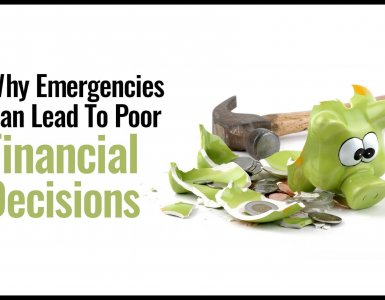

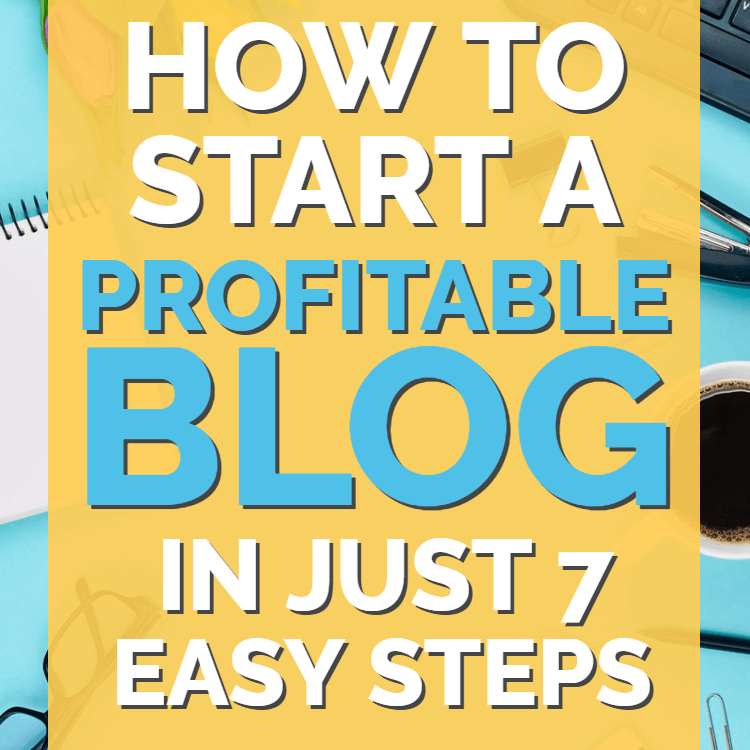

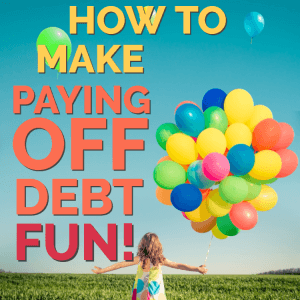
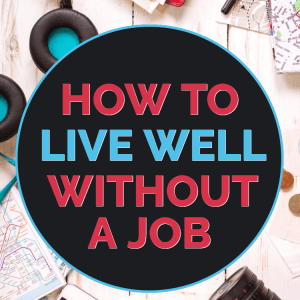
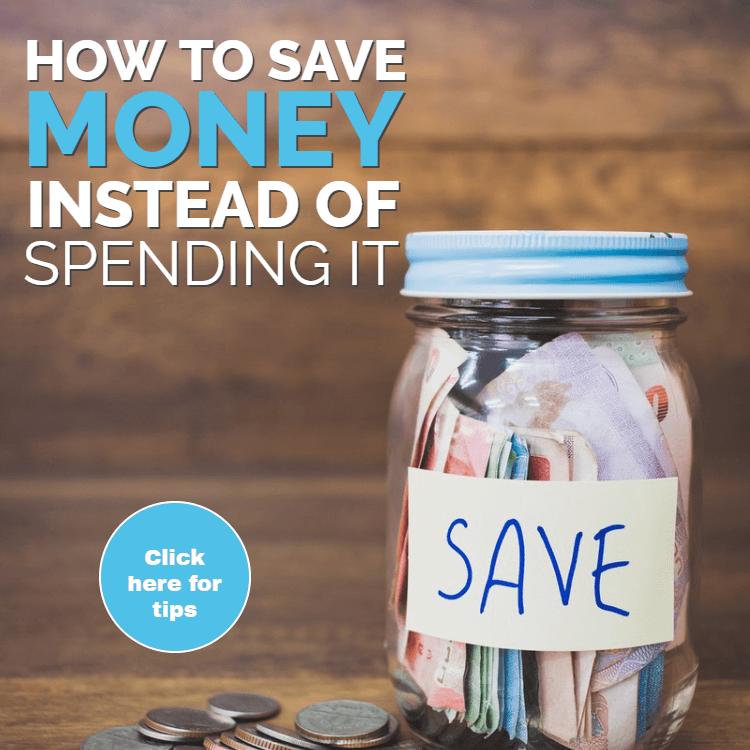
Hi yes we to want to pay off all debts including our home and then we want to then and only then.start building wealth for our future as this is really important to us.so it’s going to be a really important and exciting and enjoyable and challenging and fun and very busy year indeed for us.but can’t wait to start it
It is often better to make mistakes than to do nothing at all because you at least get to learn something.